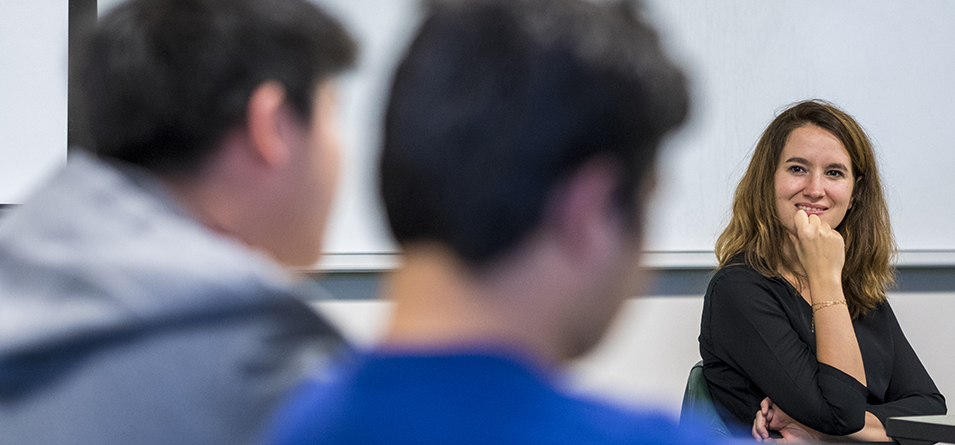
Behind the Scenes with the Grinnell Prize
How can awarding $100,000 to a social justice innovator each year benefit Grinnell students and the College? More than a few people asked that question when the Grinnell College Innovator for Social Justice Prize was first awarded in 2011.
The answer has evolved as the prize itself has evolved.
“Initially we saw the prize as a way to recognize Grinnell’s distinctive history and identity,” says Raynard S. Kington, president. “In recent years, we’ve seen how embedding the prize into our curriculum, making the winners accessible to our students, faculty, and staff so they can learn how these innovators do what they do — that’s where the real value lies — in helping us all create connections.”
Susan Sanning, associate dean and director of service and innovation with the Center for Careers, Life, and Service (CLS), took over management of the prize in 2014. “That forced me to think about the value of service and innovation. I wanted to integrate the prize into the CLS and the College,” Sanning says.
One of the ways that happens is through the planning and execution of Grinnell Prize week each fall. The winner is invited to campus and participates in a variety of events.
Mélanie Marcel, the 2018 Grinnell Prize winner, is founder and CEO of SoScience, an organization that helps scientists and social entrepreneurs collaborate to solve societal challenges. SoScience advocates an approach to research that focuses on social impact rather than on projects for which they can secure funding from industry or governments.
“Mélanie is doing something that is redefining the box,” Sanning says. As she planned public events for prize week, Sanning wanted to provide enough opportunities for students, faculty, and staff to see the immediate things Marcel is doing as well as the systemic things.
Workshops helped lay out the practical pieces of Marcel’s work. In “Using Science for Good,” Marcel introduced the field of responsible research, its actors, and its methodologies through a simple game she developed and uses in the annual “Future of” conference SoScience hosts. Another workshop, “Facilitating Collaborations Between Scientists and Social Entrepreneurs and Grassroots Change Agents,” focused on the practical strategies and tools Marcel designed and uses in SoScience.
“The participants got to interact and discuss social issues with Mélanie, while also getting to hear about her life, personal experiences, and specifics in this area of work,” says Joy Suh ’19, major in biological chemistry.
Prize Week culminated in a career panel to help students see how diverse careers can connect science and the social good. Sanning “looked for folks who are using their liberal arts education as a catalyst for careers in multiple fields.”
The alumni panelists filled that role well. They included chemistry major Mitch Erickson ’72, science adviser to the U.S. Department of Homeland Security; biology major Indrani Singh ’08, director of community health partnerships at the University of Rochester Medical Center; and Emily Stiever ’09, an independent major focused on political ecology and chief operating officer and vice president of field operations for Solar United Neighbors, a national nonprofit.
Sanning also wanted to “include an unexpected academic perspective in there,” which is why she invited Tammy Nyden, associate professor of philosophy. Nyden’s civic engagement with Mothers on the Frontline helps show students another way to connect work with service. Nyden is co-founder and president of the group, which helps inform scientific research on children’s mental health by presenting stories that aren’t typically heard.
A theme of connection wove through all the events. Making connections with people, with ideas, and with students’ own interests was key.
During her keynote, Marcel said about the Grinnell Prize and the College: “The work you are doing is really like no other. We need special places like this one, places to collaborate, places where empathy, openness, and understanding are fostered.”
Awarding the Grinnell Prize to an innovator in social justice and asking that person to share his or her experience with students provides a mutually beneficial learning opportunity. Students get to see how education is a catalyst to do what they’re passionate about, and the prize winner gets to extend his or her influence and create more connections to grow the work.
